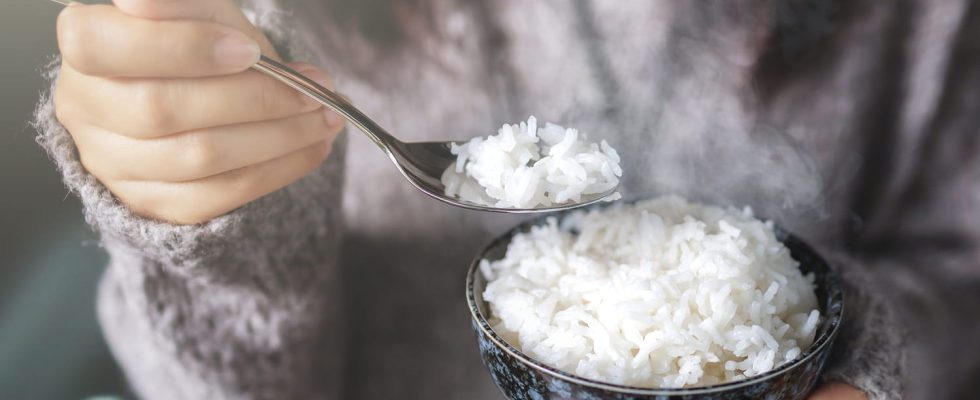This action can remove up to 70% of the nutrients from the rice.
Rice is one of the most consumed cereals in France: around 5 kilos of rice are consumed per person each year, reports the Ministry of Agriculture. But we are far from the 60 kilos consumed on average worldwide and the 188 kg consumed in Burma (the record!). Wholemeal, brown, wild, basmati, Thai… Rice is very interesting nutritionally (supplier of complex carbohydrates, fiber, vitamins of group B and minerals such as iron, phosphorus or potassium) and responds to many multiple cooking methods: in a pan, pilaf style, in a pressure cooker… Everyone has their own way of preparing it.
This is one of the secrets to obtaining soft, smooth and less sticky rice: rinsing before cooking. As many claim, rinsing your rice several times until the water runs clear helps remove “topical” starch, a substance that gives a “lumpy” and clumpy appearance to rice. Beyond its taste advantage, this reflex allows rice to be cleaned of certain debris and impurities (microplastics from food packaging, arsenic which is naturally found in soil and water). However, the World Health Organization (WHO) and other health authorities (including the Codex Alimentarius Commission) monitor rice manufacturers to ensure that levels of arsenic and microplastics are safe for health if eat it moderately. “Washing the rice is therefore not strictly necessary, insists to the magazine Health Kaitlin Sass, food scientist and director of research and development at rice company Lundberg Family Farms. Rinsing or soaking rice repeatedly for long periods before cooking can strip it of some of its nutrients such as certain fiber (“resistant starch”). These fibers are important because they improve bowel function and stabilize blood sugar levels. Also, rinsing your rice can remove 50 to 70% of rice nutrients like iron or water-soluble B vitamins, including folate (B9), niacin (B1), riboflavin (B2) and thiamine (B1).
Whether or not you decide to rinse your rice before cooking, there are other habits to keep in mind for healthy and healthy rice preparation. “amplify the health factor of your rice dishes” according to the food expert: if you eat a lot of rice, choose rice containing very low concentrations of arsenic such as basmati rice grown in California, India or Pakistan; occasionally opt for whole grain brown rice, richer in fiber and protein than white rice; From time to time add chicken or beef bone broth to the cooking water, which is remineralizing and very rich in proteins, trace elements such as calcium, phosphorus, copper, iron and magnesium.
